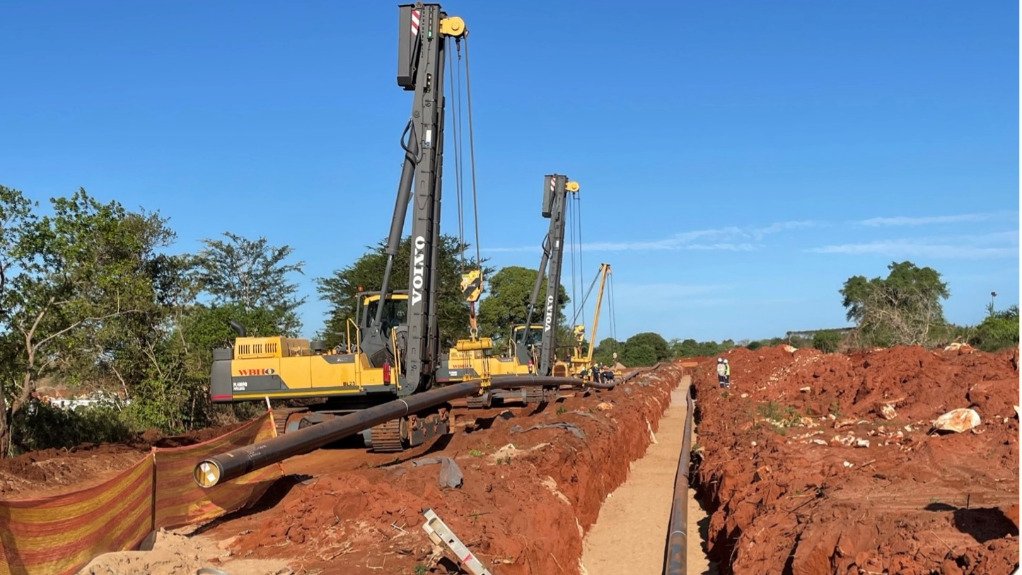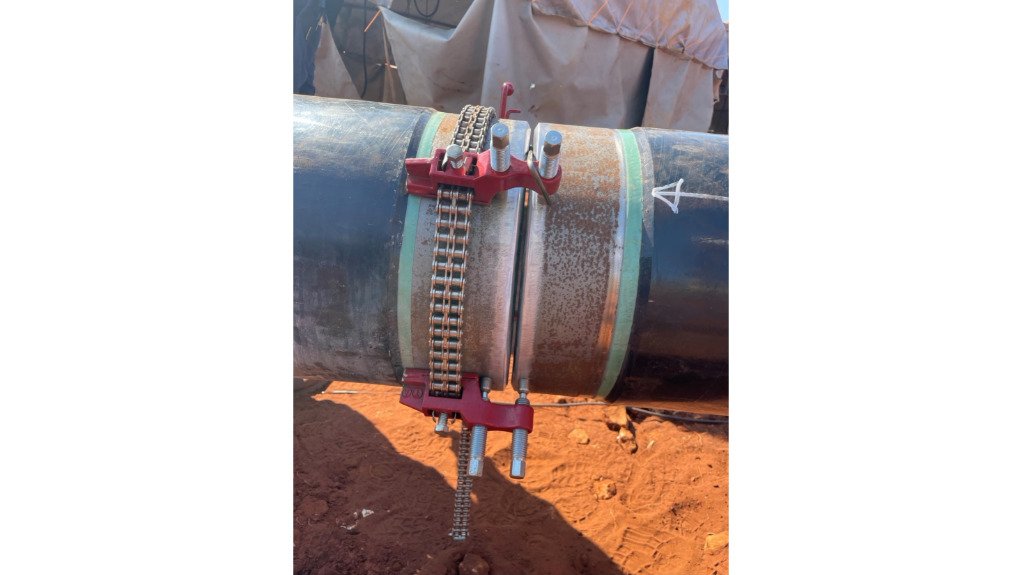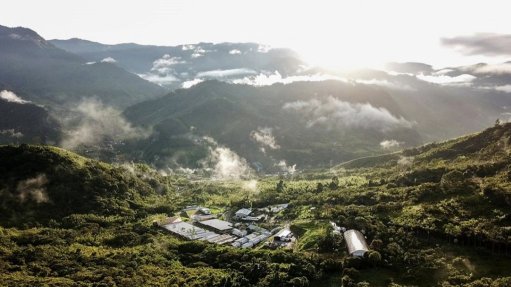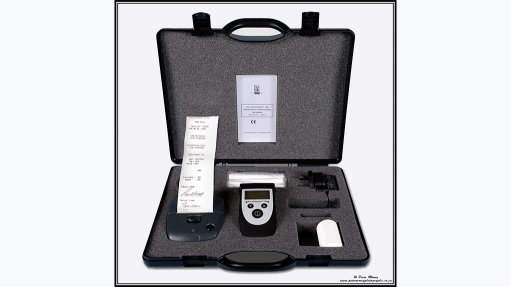Training needed to expand welder pool in remote, rural areas



LIMITED RESOURCES The limited availability of skilled resources and limited equipment poses challenges for projects in remote areas
TECHNICAL SKILLS REQUIRED The requirements for welding to meet code compliance include a combination of destructive and nondestructive testing, with these requirements being governed by the various codes of construction
The general shortage of skilled labour in remote areas, and a lack of training for local welders – to a level where they pass a welder performance qualification test – highlights the Southern African Institute of Welding’s (SAIW’s) role in addressing such labour shortages, says engineering consulting firm VGI Consulting.
The company notes that projects situated in remote areas must compete for a “small available resource pool”, exacerbating the issue, with VGI Consulting engineering manager Charl van den Berg explaining that, as a consequence, most skilled welders are sourced internationally.
“However, mobilising an expatriate welding crew is expensive, time consuming and administratively extremely difficult,” Van den Berg cautions.
Further compounding the challenge of securing sufficiently skilled welders is the fact that there is no guarantee that the expats will pass the welder performance qualification test.
He stresses that the most significant challenge in securing skilled welders in remote areas, especially in developing countries, is the mobilisation of adequately skilled resources to meet the project’s schedule demands.
This often results in construction starting later than planned because of the time it takes to mobilise skilled labour, causing scheduling pressure throughout the project. Production ramp-up rates are also slower than envisioned, owing to these cumulative delays.
Additionally, there is the requirement of detailed planning for mobilisation, including planning related to the stocking of spares and the retention of skilled technicians who can conduct basic repairs on site to reduce equipment downtime.
“Time is normally the biggest issue. Early appointment of contractors allows adequate time for mobilisation and sourcing of the materials required for mobilisations,” explains Van den Berg.
He notes that, unfortunately, the cost of project execution can increase as a result of early mobilisation, as the period from the contract start date and the actual start of construction attracts indirect costs.
Therefore, it would be faster and more cost-effective to use local resources, which is why SAIW has an important role to play in the training up of local welders required for projects, especially for those projects where the quality of the installation is paramount.
Van den Berg adds that, generally, the minimum qualifications for inspectors and nondestructive evaluation technicians are contractually enforced. Consequently, there is a large dependency on the SAIW, both in terms of training these inspectors and technicians, and in providing the requisite certification.
Meeting Code Compliance
Van den Berg explains that the requirements for welding to meet code compliance include a combination of destructive and nondestructive testing (NDT), with these requirements being governed by the various codes of construction.
He cites, for example, that in pipeline construction, project-specific qualifications are frequently required. He notes that VGI Consulting generally procures, for and on behalf of its clients, and supplies a surplus of materials as part of the line pipe purchase order to issue these materials to the contractors for qualification purposes.
According to Van den Berg, where welding is expected on the American Society of Mechanical Engineers’ (ASME’s) Boiler and Pressure Vessel Code Section IX-listed materials, the contractor is required to supply the material for qualification purposes, with project-specific requirements invariably requiring new qualifications.
“Owing to the unavailability of skilled welders, most welders sourced from various locations require updated qualifications. However, the limited supply of material requires careful planning,” he elaborates.
He notes that this is especially pertinent where numerous unsuccessful qualification attempts may lead to material shortages. Additionally, the lack of materials may delay the start of welding procedure qualifications and impact on the welder’s performance qualifications.
Acceleration is a challenging consideration, given the limited availability of skilled welders and equipment. Included in these limitations are the sparse opportunities to increase resources, should production rates exceed the quality management team’s capacity.
Van den Berg points out that “this may be owed to changes in the number of working areas increasing from the original plan. In these instances, the capacity of the quality management team limits the production rates”.
Since there is limited access to testing facilities in remote areas, production testing is limited to NDT techniques, with the biggest impact affecting the qualification of welding procedures, as destructive testing by a certified laboratory is required.
A single iteration of welding and testing may take several weeks to complete, and failure of any test means the qualification process needs to be repeated.
To reduce this repetition, more than one sample is welded by different welders and different welding inputs. Van den Berg adds that, where possible, basic destructive testing is completed on site – limited to bend tests and nick break tests.
He explains that to further prevent logistical challenges, the approval of all relevant procedures and personnel qualification is a prerequisite for welding to start, as this is one of the foremost factors impacting on the schedule.
Van den Berg comments that contractors are continuously searching for local welders to train and certify, but notes that often the training of local welders proves unsuccessful.
He therefore reiterates the importance of the SAIW in supporting contractors in their efforts to professionalise and upskill welders, by developing and growing the available base of skilled welders.
Article Enquiry
Email Article
Save Article
Feedback
To advertise email advertising@creamermedia.co.za or click here
Press Office
Announcements
What's On
Subscribe to improve your user experience...
Option 1 (equivalent of R125 a month):
Receive a weekly copy of Creamer Media's Engineering News & Mining Weekly magazine
(print copy for those in South Africa and e-magazine for those outside of South Africa)
Receive daily email newsletters
Access to full search results
Access archive of magazine back copies
Access to Projects in Progress
Access to ONE Research Report of your choice in PDF format
Option 2 (equivalent of R375 a month):
All benefits from Option 1
PLUS
Access to Creamer Media's Research Channel Africa for ALL Research Reports, in PDF format, on various industrial and mining sectors
including Electricity; Water; Energy Transition; Hydrogen; Roads, Rail and Ports; Coal; Gold; Platinum; Battery Metals; etc.
Already a subscriber?
Forgotten your password?
Receive weekly copy of Creamer Media's Engineering News & Mining Weekly magazine (print copy for those in South Africa and e-magazine for those outside of South Africa)
➕
Recieve daily email newsletters
➕
Access to full search results
➕
Access archive of magazine back copies
➕
Access to Projects in Progress
➕
Access to ONE Research Report of your choice in PDF format
RESEARCH CHANNEL AFRICA
R4500 (equivalent of R375 a month)
SUBSCRIBEAll benefits from Option 1
➕
Access to Creamer Media's Research Channel Africa for ALL Research Reports on various industrial and mining sectors, in PDF format, including on:
Electricity
➕
Water
➕
Energy Transition
➕
Hydrogen
➕
Roads, Rail and Ports
➕
Coal
➕
Gold
➕
Platinum
➕
Battery Metals
➕
etc.
Receive all benefits from Option 1 or Option 2 delivered to numerous people at your company
➕
Multiple User names and Passwords for simultaneous log-ins
➕
Intranet integration access to all in your organisation



















